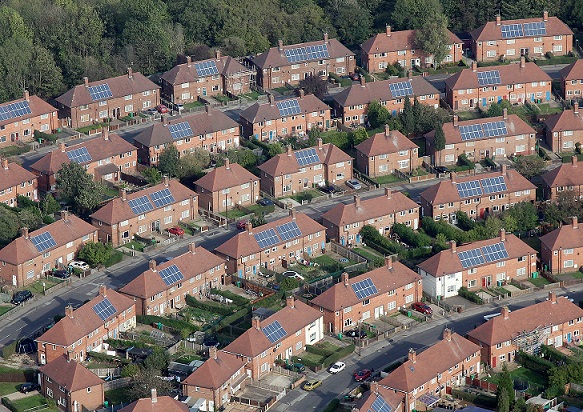A number of European associations have urged the continent’s policymakers to re-assess priority dispatch and balancing responsibility for small-scale renewables, arguing them to be the “backbone” of a smart, decarbonised grid.
A total of 17 trade associations, writing under the scope of the Small is Beautiful Campaign, have addressed Europe’s policymakers ahead of an upcoming meeting on electricity market design.
In the letter the likes of Wind Europe, SolarPower Europe and the European Renewable Energies Federation have taken aim at moves announced within the European Council’s general orientations on electricity market regulation, which could pave the way for member states to remove priority dispatch and exemptions on balancing responsibilities.
Such efforts would, according to the associations, place small-scale renewables “at an extreme disadvantage” in the market place.
“Small-scale renewable and high efficiency cogeneration installations will support Europe’s industrial leadership in clean energy technologies and bring important benefits at all levels of society.
“These installations will be the backbone of a smart, decarbonised and increasingly distributed energy system, empowering energy consumers, communities and territories with clean and sustainable energy supply,” the letter states.
It goes on to stress that any future regulatory framework discussed at the trialogue meetings should not disincentivise small, local players or developers in the field of renewables from reaching their potential, and that “scrapping” any potential economic benefits or imposing “overly burdensome processes and obligations” stood to do just that.
Aurélie Beauvais, policy director at one of the letter’s co-authors SolarPower Europe, said that small-scale renewables made the energy transition “a reality at the local level”. The trade association is calling for a stepped market integration of small-scale renewables centred around innovation and demonstration projects.
The threat to renewables’ priority dispatch status in Europe first loomed more than a year ago, after proposals from the Agency for the Cooperation of Energy Regulators hit desks at the European Council.
The proposals were lambasted as “irresponsible” at the time, before Europe’s renewables lobby leapt to the defence of renewables by arguing that the policy’s withdrawal would be counterproductive to decarbonisation agendas.






